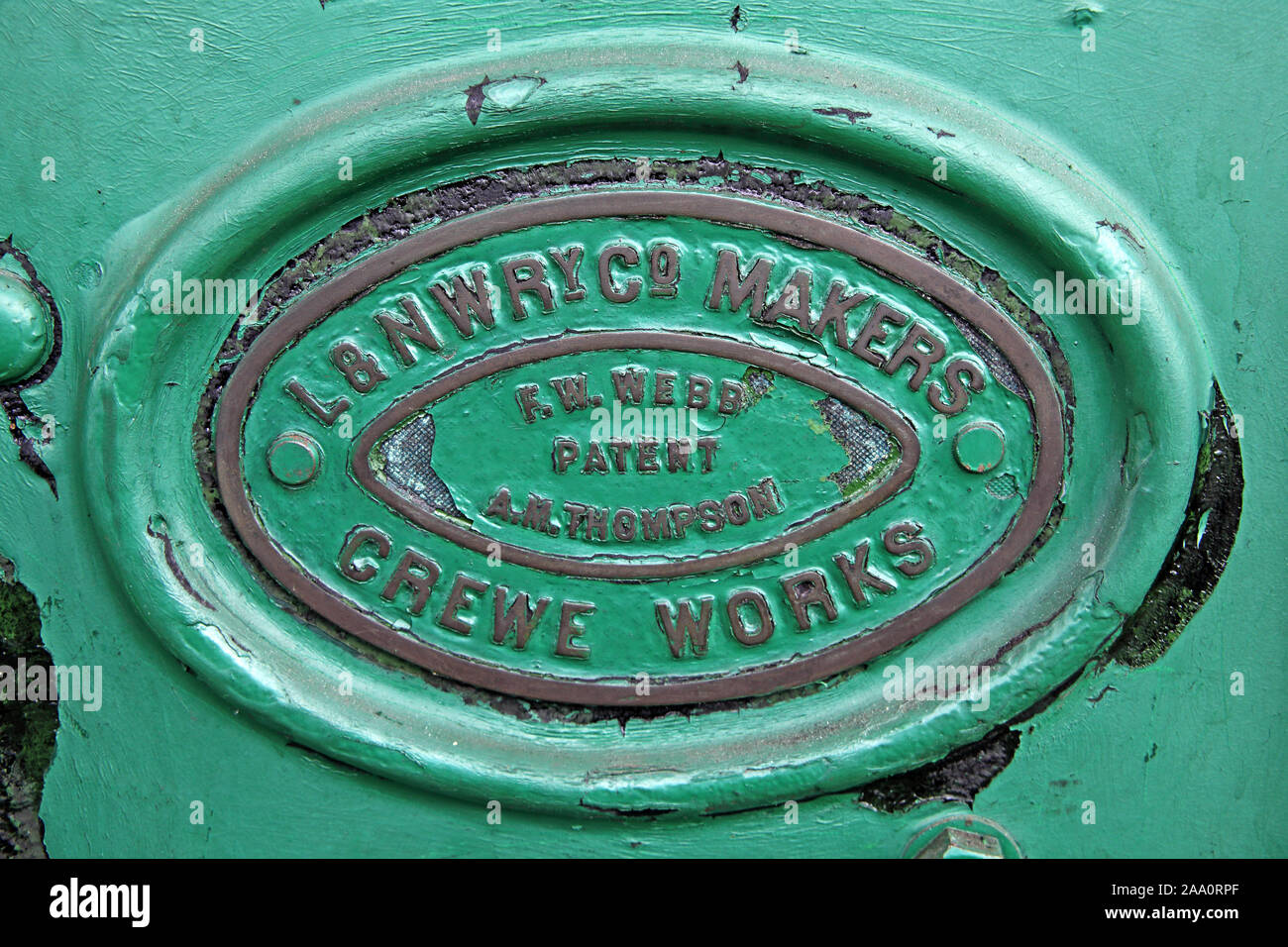Makers plate, green, L&NWryCo makers, London and North Western Railway,Crewe Works, FW Webb, patent,AM Thompson

Image details
Contributor:
Tony Smith / Alamy Stock PhotoImage ID:
2AA0RPFFile size:
60.2 MB (3.2 MB Compressed download)Releases:
Model - no | Property - noDo I need a release?Dimensions:
5616 x 3744 px | 47.5 x 31.7 cm | 18.7 x 12.5 inches | 300dpiDate taken:
25 April 2010Location:
Crewe Works, Cheshire,England, UK, CW1More information:
Crewe Works is a British railway engineering facility built in 1840 by the Grand Junction Railway. It is located in the town of Crewe, in Cheshire. It is currently owned by Bombardier Transportation. The railway also built 200 cottages establishing a new community in what had been the rural township of Monks Coppenhall. Among the first workers to arrive were those from the old works at Edge Hill producing an increase in the town's population by some 800 men, women and children. In 1845 the Liverpool and Manchester Railway was merged with the Grand Junction. These, in turn, merged in 1846, with the London and Birmingham Railway and the Manchester and Birmingham Railway to form the London and North Western Railway (LNWR). All four had their own workshops but, in time, locomotive building was concentrated at Crewe. In 1857 John Ramsbottom became Locomotive Superintendent. He had previously invented the first reliable safety valve and the scoop for picking up water from troughs between the tracks. He went on to improve the precision and interchangeability of tools and components. In 1862 locomotive work was transferred from Wolverton. Wolverton became the carriage works, while wagon building was concentrated at Earlestown. In 1853 Crewe had begun to make its own wrought iron and roll its own rails, and in 1864 installed a Bessemer converter for manufacturing steel. In 1868 it became the first place to use open-hearth furnaces on an industrial scale. It also built its own brickworks. Later the works was fitted with two electric arc furnaces. Production increased steadily and, with the sale to the Lancashire and Yorkshire Railway of ten 2-4-0 and eighty six 0-6-0 locomotives, privately owned manufacturers took out an injunction in 1876 to restrain the railway from producing anything but its own needs. This remained in force until British Rail Engineering Limited was established in 1969.